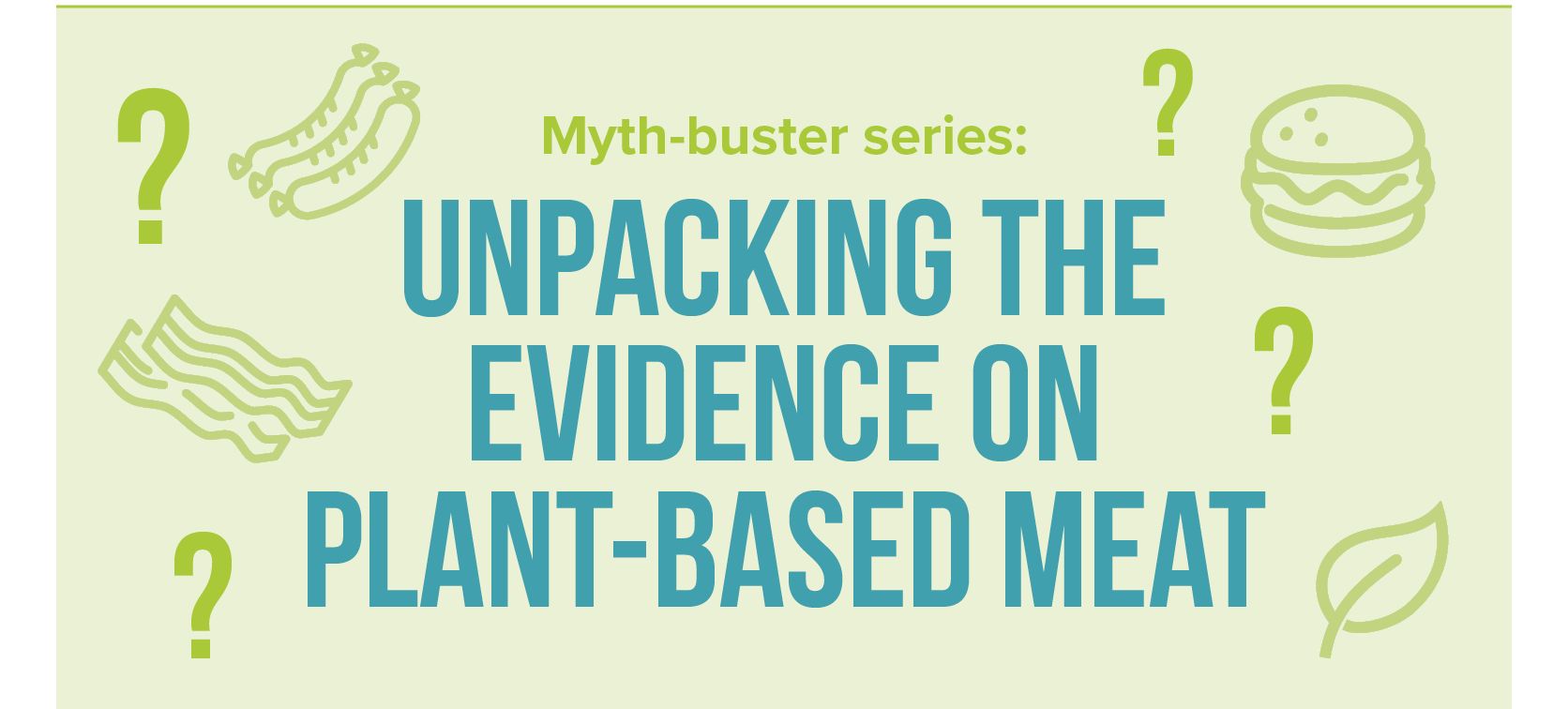In our recent report, Plant-Based Meat: A Healthier Choice?, we explored the available evidence behind topics that may be a source of confusion for some consumers. From the health impacts of soy consumption to whether plant-based meats have too much sodium and not the right kind of amino acids, we examined the available body of evidence to present summary findings in our report.
Let’s unpack some of those findings to bust some common myths around plant-based foods. Here are the facts:
MYTH: Soy will mess with my hormones!
Consumption of soy, or more specifically – phytoestrogens – a component of soy, has been blamed for impacting male reproductive hormone levels due to its similar structural similarity of phytoestrogens to estrogen.
FACT: Despite conflicting results from animal or cell studies, which cannot be inferred to humans, the body of evidence from 30 years of human studies does not support these claims. A meta-analysis of 32 studies investigated the impact of soy protein or isoflavone intake at amounts that were almost double the average amount consumed by Japanese males – some of the highest consumers of soy foods in the world. The results: no significant effects on testosterone or other reproductive hormones.
MYTH: Plants aren’t complete proteins!
There are significant differences between the essential amino acid (EAA) content of plant and animal products; for example, cereal proteins are low in certain amino acids. If intake of plant-based protein is restricted to a single plant source, people may miss out on essential amino acids. However, it has been shown this can be mitigated by eating a variety of plant-based protein sources.
FACT: The idea that individual protein sources must contain all nine EAAs – or that foods must be combined to include all essential amino acids in one meal to produce “complete” proteins – has been disproven. The need for people eating a plant-based diet to consume extraordinarily high levels of protein to ensure sufficient EAA intake is a common myth. Instead, those eating plant-based diets will meet their amino acid needs by simply ensuring adequate energy intake and eating a variety of plant-based proteins and plant foods throughout the day.
MYTH: Plant-based meat is too high in sodium!
A common criticism of plant-based meat is that products can be high in sodium, with critics voicing it therefore poses health risks. Sodium is a nutrient to limit, considering high sodium intake is associated with the development of high blood pressure and cardiovascular disease.
FACT: Our analysis of plant-based meat products available in Australia and New Zealand found that while some individual products do contain relatively high sodium content, most plant-based meat categories have, on average, less sodium than similar conventional meat products (See Tables 3 and 4 in Section III of the report). In fact, we found that conventional sausages have 47% more sodium on average than plant-based sausages, while conventional bacon has 99% more on average.
For more details and links to studies referenced for this evidence, download your free copy of Plant-Based Meat: A Healthier Choice? at www.foodfrontier.org/reports.
